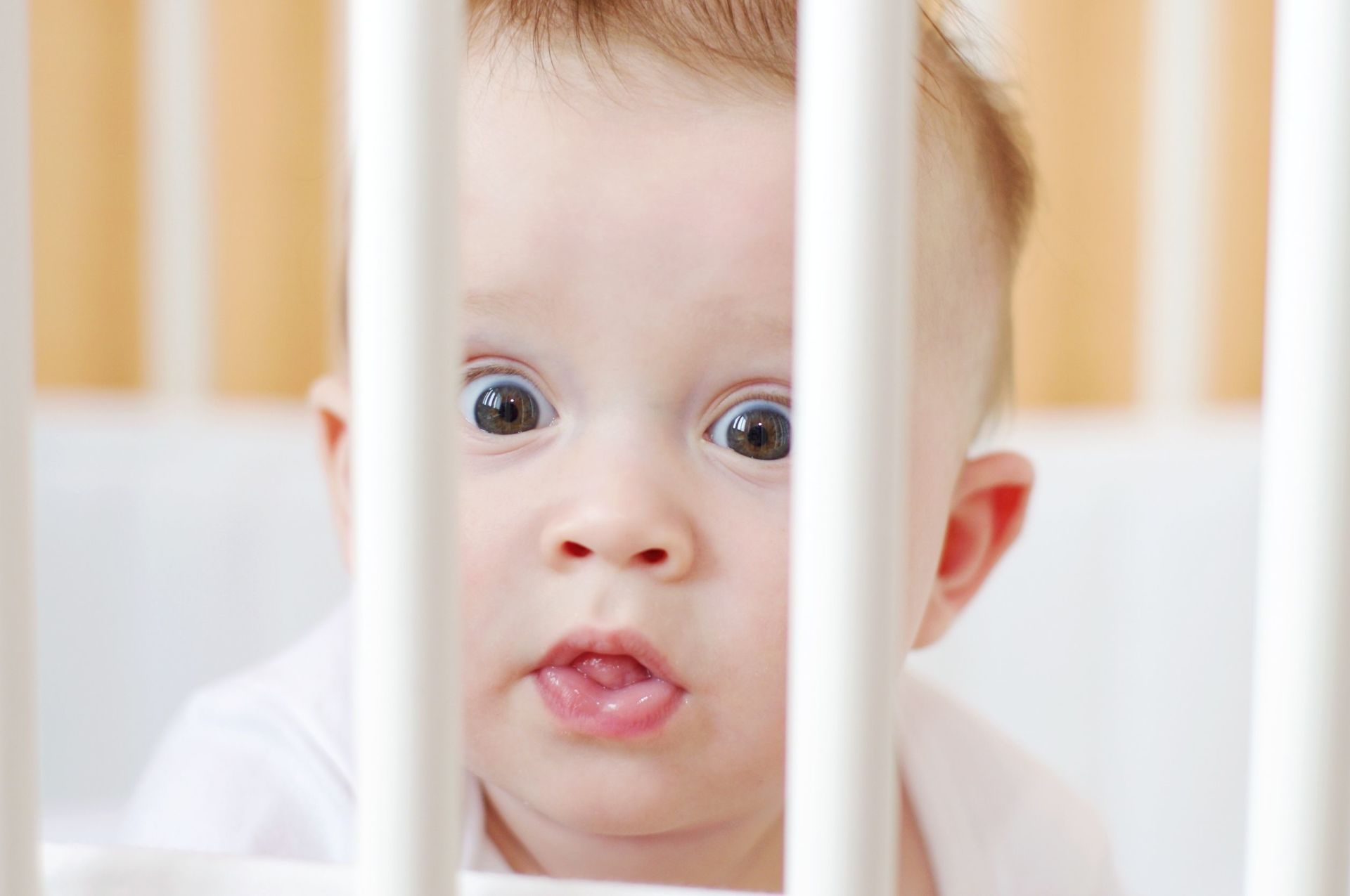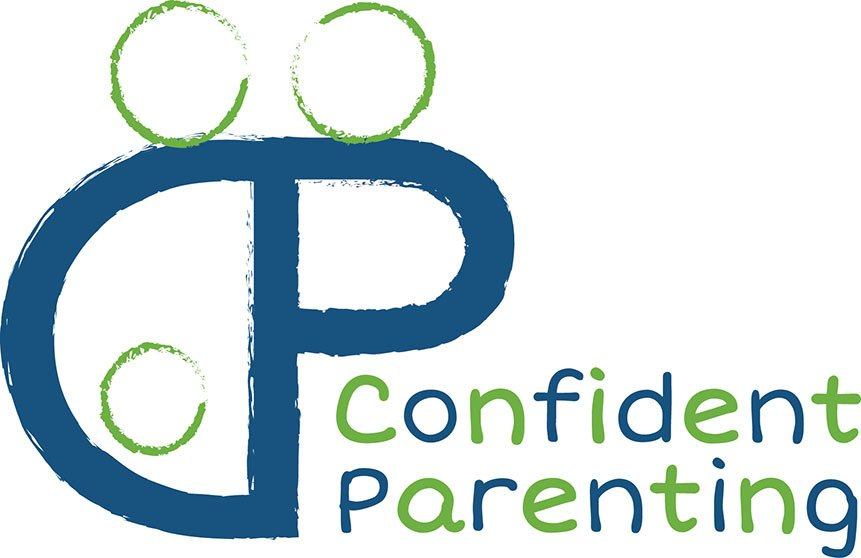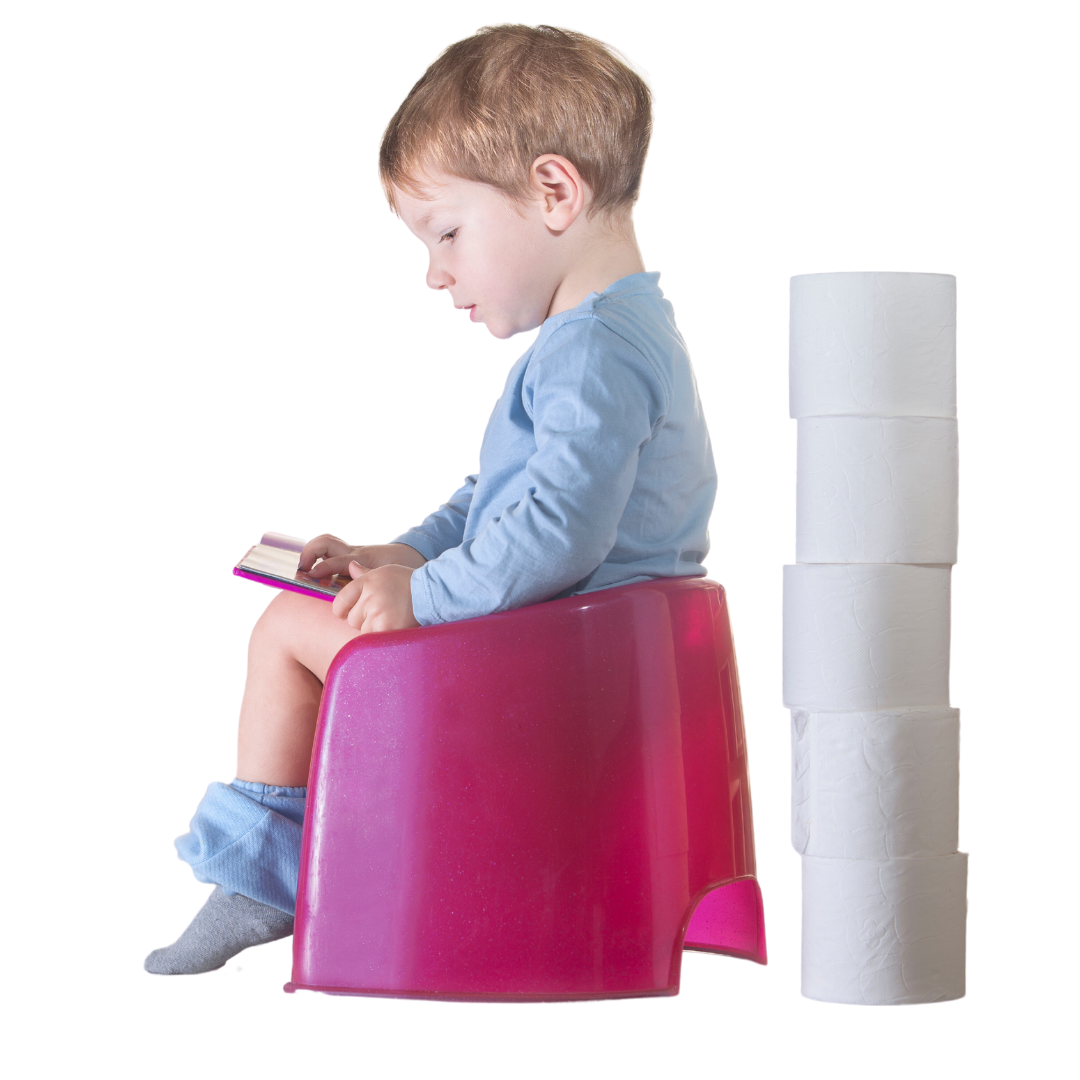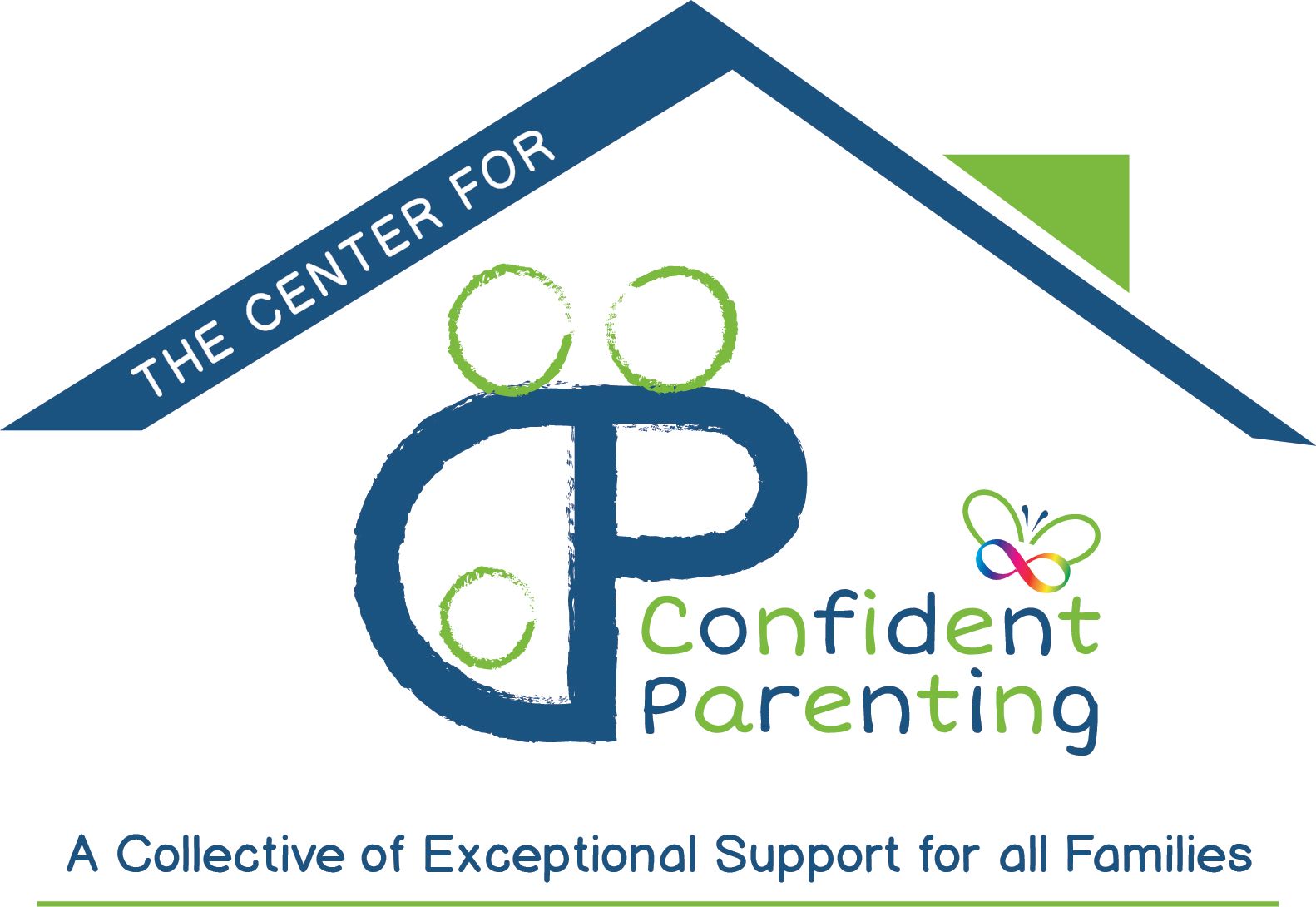Nicole Didizian is the founder of Main Line Family Education (www.mlfed.com), a Learning and Support Center located in Devon, PA that offers award-winning, live virtual classes and community opportunities for expectant parents and new families. Nicole is a Registered Nurse and holds a Bachelor of Arts in Literature and a Bachelor of Science in Nursing. She has over a decade of experience working in Labor and Delivery, Newborn Nursery, Postpartum and NICU units and is a Certified Childbirth Educator and a Certified Breastfeeding Counselor. She is the mother of 2 young children and resides in the Philadelphia suburbs.
Ten Essential Tips Every New Parent Should Know
Nicole Didizian, RN-BSN, CBC, CCE
Experienced newborn nurse, Nicole Didizian, of Main Line Family Education shares her need to know tips...

If you're expecting a baby, your head might be spinning. Parents-to-be have access to more information now than ever before. Here are ten essential tips to help you prepare for parenthood, based on my experience working with growing families:
1. Newborns are soothed by anything that makes them think they’re still inside the womb.
Being swaddled
or held close to your body, hearing your voice or your heartbeat, and being rocked gently are all comforting to little ones because they simulate your baby’s life before birth. When a newborn is held away from your body or unwrapped and placed in a large bassinet or crib, they may feel unsafe and/or insecure. Newborn wraps and/or carriers
are favorites of many new parents because they’ll allow you to keep your baby safely and comfortably “attached” to your body (their favorite thing!) while allowing your hands to be free.
2. Newborns sleep 16-18 hours out of every 24, but in short 1-2 hour spurts.
Some newborn sleep cycles can be as short as 15 minutes. Some children have a harder time with sleep while others seem to be able to rest without any difficulty. But one thing is universal with newborns and sleep: parents don’t get a lot of it in the very beginning because newborns don’t cluster their rest time! If you’re worried about sleep before your baby is born or you’re already a new parent and you’re exhausted, there is expert advice and support nearby. Some days and nights will be harder than others, but as every parent of an older child will tell you: it won’t last and you will sleep again. I promise!
3. Feed your baby on demand, but be sure it’s at least 8 times in every 24 hours.
This is true regardless of whether your baby is getting breastmilk, formula, or some of both. Sometimes your baby will need to eat even more often (research growth spurts!) and that’s okay. If you’re concerned your baby isn’t getting enough, track their wet diapers and call your pediatrician. Almost all babies lose weight immediately after birth, but gain it back by the time they are 2 weeks old.
4. NOW is the best time to start Tummy Time with your baby!
This designated daily time when parents are down on the floor “playing”
with their newborns has been shown to help develop connection, posture, movement, oral and gross motor skills in newborns. Does your newborn “hate” tummy time, or do you find yourself hesitant to do it as often as you should? There are ways to help your baby learn to love it! Find a class taught by a certified pediatric physicial therapist
and/or tummy time expert. It’s a great opportunity to socialize with other new parents AND learn how to make this important developmental building block enjoyable for the whole family.
5. Newborns should have at least 6 wet diapers every 24 hours by Day 4 of life.
Many diapers will be dirty as well as wet, and it can be hard in the beginning to know for sure if your baby has urinated. The key is the weight of your baby’s diaper. Hold a dry diaper and notice how light it is. Then pour some water into it and notice how it gets significantly heavier as soon as it absorbs the moisture. Wet diapers are almost always noticeably heavier than diapers with only stool in them. When in doubt, look for the indicator line to change color on the outside of the diaper - but be sure to look in the front for boys, and the back for girls!
6. A “witching hour” (or hours!) in the evenings when your baby is harder to soothe is common.
It can even start as early as a day or two after your baby is born. Many parents find themselves dreading the sunset, in anxious anticipation of the crying that is about to commence. Share the job of soothing with your partner (someone has to remain hands-free to heat up dinner!) and take a break if and when you need one. Call your pediatrician if you are concerned.
7. Books cannot prepare you, they can only guide you.
There are many wonderful books that have been written for both expectant and new parents, and I recommend them A LOT. But, if you think reading alone will adequately prepare you for new parenthood, you’re setting yourself up for disappointment. Books are great starting points, but shouldn’t take the place of a class, connecting with an expert, or asking friends who have recently become parents for tips. Just don’t be phased by any “war stories” you hear…people tell them because they’re a lot more dramatic and exciting than the ones where things go smoothly! If there’s one thing I’ve noticed again and again, it’s that the fear of the unknown is almost always more overwhelming than the actual experience ends up being. Know what to expect by planning ahead!
8. Don’t ask Facebook or Dr. Google for medical advice - that’s what your pediatrician is for.
The lure of a quick reply via social media or the internet will get the better of new parents quite often. Who else is awake with you in the middle of the night to answer your most pressing questions?! Just remember that Dr. Google does not have a medical degree and although the moms on your Facebook Groups are well meaning, their advice may not be the right advice for your family. Your relationship with your baby’s pediatrician is one of the most important doctor/patient relationships you will ever have. Do your research, ask questions and pick a practice that feels like a “fit” for your family well in advance of your due date.
9. Babies will cry when they need something. Never ignore a crying newborn.
Crying is the way that newborns communicate. A crying newborn may be trying to tell you they are hungry, wet/dirty, cold, hot, gassy, sleepy, overstimulated, sick or even bored! In the beginning all cries sound the same so it can be challenging for new parents to recognize the specific need right away. What’s most important is to note that your baby’s developing brain is shaped by how you treat him or her. Your loving attention to cries teaches your newborn early on to trust you and to trust others – an important foundation for their future emotional health.
10. Self-care is not a luxury for new parents, it’s a necessity. Identify what YOU need, communicate with your partner, schedule it into each day.
Reading a chapter in a good book alone, away from your baby, taking a hot shower alone, while your partner watches your baby, going for a walk around the block alone, while your partner cares for your baby….notice a trend?? New parents need to step away from their newborns to truly unplug and identify what it is that replenishes their energy, even if it’s only for 10 minutes a day. Caring for yourself will make you a better caregiver for your little one.

When your baby or child isn’t sleeping, you may be willing to try anything to get those little eyes to close. And while well-meaning friends and family always have their best (often unsolicited!) advice handy, many parents end up compounding sleep challenges by following inaccurate advice. Here are 5 common sleep myths you’ll want to avoid falling for. The Myth: "If I Put My Baby to Bed Later, They Will Sleep Later the Next Morning.” The Reality: Adults can compensate for a late bedtime by sleeping in the next morning. Babies and children, whose sleep is heavily dictated by their internal clock, often cannot. A pattern of too-late bedtimes will create a sleep deficit, which may in turn trigger even earlier waking, compounding the deficit. Overtired bodies respond by releasing hormones, such as the stress hormone cortisol, at times when they aren't needed or helpful which creates more difficulties in falling asleep and staying asleep. Surprisingly, the fix is often an earlier bedtime . Try it! Your child may sleep better and longer. The Myth: "If My Child Naps Less During the Day, They Will Sleep Better at Night." The Reality: Following this guidance can create a vicious cycle of over-tiredness. Nap deprivation can cause difficulty settling for naps and at bedtime, shortened nap lengths, frequent night waking, and early rising. A good night of sleep starts in the morning by getting adequate naps with ideal wake windows between sleep periods. Newborns need sleep about every 1-2 hours. For a fussy baby, try to start the soothing routine well ahead of the goal sleep time and possibly even before you see any obvious sleepy cues. Babies 6 months or older need to sleep about every 2-3 hours. Toddlers can stretch about 4-5 hours between sleep periods. Figuring out your baby’s “sleep window” can mean smoother and longer nap times. The Myth: “My Child Just Needs Less Sleep Than Most Children Their Age.” The Reality: Yes, total sleep requirements do vary from child to child and there is a wide range of "normal". Some children reach developmental milestones earlier and seem to need less sleep than their same age peers. You know your child best, and no generic chart or ‘rule’ can substitute for your own good sense. Be aware, however, that some very alert, busy children actually need the same or even more sleep than their peers. They are just better at hiding signs of tiredness and more tenacious in fighting sleep and routine. If sleep is a struggle, your child looks visibly tired, or if you are experiencing behavioral challenges, they are likely getting insufficient sleep. Far more parents suspect their child needs less than their peers than the number of children who actually do. The Myth: “I Can't Improve Sleep My Baby's Sleep Because I'm Not Ready to Stop Nursing or Co-sleeping." The Reality: A solid foundation for healthy sleep as well as practicing and mastering how to fall asleep can happen within any sleeping or feeding arrangement. While co-sleeping does create additional challenges or variables, that doesn't need to stop you from helping your baby get the sleep they need. If you enjoy nursing and want to continue, that’s great! However, allow baby to practice falling asleep without the breast and out of arms some of the time too. Or work on trading down their sleep associations , for example moving from feeding to sleep to snuggling to sleep. The Myth: “I Can't Improve Sleep Because I Don't Want My Child to Cry it Out.” The Reality: The ‘cry it out’ debate has raged on for years but no single approach will fit or work for everyone and gentler, more gradual methods exist that very often work just as well. Certainly, be prepared for a few tears, but you can limit those tears of communication and support your little one with, you guessed it, consistency! Choose a method that suits your lifestyle so you can follow through regularly. It would be lovely to believe that, once your baby is sleep trained, you’ll never have to do it again. However, developmental milestones, especially in the early years, can temporarily disrupt even the best sleeper’s good habits. Shake those up with travel, illness, moving, or a new sibling, and you may find you have to begin again. Don’t worry – these changes are almost always temporary. Just think — one day, your baby will be a teen, and you’ll be looking for guidance on how to get them out of bed! If you need support to address sleep challenges with your baby, toddler or school age child, our team is ready to help. You May Also Be Interested In: The #1 Reason Your Baby is Fighting Sleep Why is My Baby Waking So Much?! Do I Need to Sleep-Train My Baby? Which Method is Best? 3 Ways to Decide Does Changing Sleep Habits Mean My Baby Has to Cry?

Every Fall we are swimming in calls and emails from exhausted parents whose baby or child is waking way too early every morning. So let’s talk about it! First, let’s make sure we’re talking about the same thing. Babies and children are programmed to be early to bed and early to rise so, typically, waking at 6 or later is considered normal. We define early rising as regularly waking before 6 am, before an adequate total of sleep, or at a time that is unusually early compared to your child’s normal wake time. So what causes a child to gradually or suddenly begin waking too early? Bedtime is Too Late or Too Far Out From the End of Nap The most common cause is too late of a bedtime or, similarly, too long of a wakeful period from the end of nap to bedtime. Our little ones have an internal clock that tells them when to feel sleepy and when to wake up as well as how long they can comfortably manage being awake. Going to bed after their ideal time actually causes them to pop awake earlier the next morning. As counterintuitive as it may seem, going to bed even a tad too late or too tired often results in less sleep rather than more. Many parents fall into this trap in the spring and summer months as it stays light out later and we are extra busy with traveling and socializing. Your child’s clock and sleep needs, however, do not shift later with the daylight so this can cause a delayed reaction that surfaces in the Fall. So, if bedtime has recently shifted in your home or naps have been hit or miss that is the likely culprit for the early wake up call. Take a close look at your recent family schedule and aim as often as possible to shift back or at least closer to the schedule that was in place when all was well with sleep. The Room is Too Bright The level of light in your child’s room can interfere with sleep year round but especially during those seasonally extra-long days. Daylight has a big impact on sleep as the reduction of daylight in the evening causes our bodies to release the sleep helping hormone, Melatonin and the rising of the sun signals our brain to wake up. So if the summer sunlight is streaming into your child’s room at bedtime and the crack of dawn the next morning sleep struggles may ensue. Blackout curtains can be a lifesaver or, in a pinch, thick black trash bags and tape around the window frames. For some very sensitive children even the light that streams in the sides of the curtains is enough to trigger a wake up. For these little ones wrap around curtain rods may be necessary or a product like the ones available at BlackoutEZ.com or SleepoutCurtains.com . If you are traveling or have windows that are too large to cover, consider the SlumberPod . Developmental Leaps If your little one is approaching or mastering a new cognitive or motor skill this leap can cause temporary early rising. For example if they are learning to roll, crawl, about to take their first steps or acquiring new vocabulary very quickly their brain and body may be so revved up that they pop awake bright and early wanting to practice. Naps often suffer during leaps too which can compound the problem. Your best bet during a leap is to try to keep your child as rested as possible until normal sleep patterns resume. If they have a back-up sleep method such as the car or stroller use that to your advantage to tank them up on sleep. If not, a temporary earlier bedtime can help offset the early rising, not by solving it but by keeping sleep totals high until the leap passes and a normal wake time and bedtime can resume. Early Wake Time is Being Reinforced Whatever the cause of your child’s early rising you’ll want to be cautious to avoid reinforcing it as the new time to start the day. While it is much easier to just let them get up whenever they wake, that will reinforce this as the new wake time making it much harder to correct. Instead, aim to have a set time when it is okay to start the day (you can use 6 am or after 11 hours of sleep or whatever was normal for your child) and treat anything before that time as you would a middle of the night waking. That may mean responding with a quick check in, helping back to sleep or ignoring depending on what you are comfortable with. The goal would be to persist with that response either until your child returns to sleep or until the clock strikes the set time at which point you can get them up to start the day. While it will feel frustrating to leave your child in their room and not have them return to sleep, it will accomplish the goal of not reinforcing the early waking time which can pave the way for correcting the habit. For children 18 months and older you can consider introducing a toddler clock such as the Gro, OK to Wake, or Hatch clocks. These can help a child to understand when it is and isn’t time to get up (without relying on sunlight) and make your responses seem much less arbitrary. Falling Back on the Clock The end of daylight saving can easily rock your child's sleep timing and totals. Overnight we decide that baby's usual wake time is now "too early". It stinks for everyone and it isn't your child's fault. You can read our tips on shifting before or after the clocks change below. The goal is to prevent a domino effect of overtiredness and/or getting stuck on schedule that starts and ends too early, so you'll want to make sure you are helping them shift back to more reasonable times/your goal times a little bit each day. How to Survive Falling Back on the Clock These are just a few of the reasons mornings may creep or have crept earlier for your family. Whatever the cause, you can take steps to reclaim your mornings! And if you can’t sort out the cause or solution on your own, our sleep team is ready to help.

The time change is swiftly approaching and parents are beginning to panic! I don’t blame you. If you have a sensitive little one like I do, the time change can wreak havoc on the family’s sleep for a long time. Bedtime will feel a full hour later to your child and a 6am wake-up call abruptly becomes a 5 am one! Here are some tips to help your family prepare for the change and transition more smoothly... Before the Change: O ption #1 – Do Nothing! If you have a child who is rather adaptable and well rested and who is waking at a reasonable time each morning you may be able to go with option #1 and do nothing in preparation for the change. When your family wakes that morning simply shift the day’s schedule and activities to the new clock times and roll with it. Your child may be a little overtired and feel free to offer naps and bedtime slightly earlier if needed but your child should adjust within a few days. They may continue to wake "too early" on future mornings though and you'll need a plan for that so be sure to keep reading, just in case. Before the Change: Option #2 – Shift the Schedule in Advance If you have a more sensitive child, one who is already overtired or waking too early in the morning (before 6 a.m.), you may want to consider shifting their schedule in advance of the change. Remember that sleep times on Sunday will feel a full hour later to your child and, for a sensitive child, can wreak havoc on sleep and their mood. For these kiddos consider approaching the transition gradually by spreading the time shift out over four nights rather than one. You can do this by shifting wake time, meals, naps and bedtime 15 minutes later each day. For example, if bedtime is 7:00 p.m., you could begin on Thursday night by shifting that to 7:15 p.m., then 7:30 on Friday night and 7:45 on Saturday night. By Sunday night bedtime would be 8:00 p.m. which will again be 7:00 on the new clock. For highly sensitive children you can slow that process down even more, shifting the schedule by just 5-10 minutes at a time and/or every 2-3 nights and starting farther in advance. After the Change: Option #3 – Split the Difference/Shift After the Fact If you are/were unable to shift the schedule in advance or, if you plan to do nothing but your child struggles with that, you can split the difference. To split the difference shift your child’s schedule earlier by 30 minutes the day the clocks change and another 30 minutes earlier the following day. For example, if nap usually falls at 9 am and you put baby down at 9 am on the new clock that will feel like 10 am to them, a full 60 minutes later than usual. To avoid too much overtiredness you can split the difference, putting baby down at 8:30am on the new clock so they feel only 30 minutes overtired. Then, the following day, shift another 30 minutes back to napping at their usual time of 9 am on the new clock. Of course you can do this same shift in smaller increments after the fact as well, taking more than 2 days to match up to the new clock times. When in doubt, ask yourself, "What time does it feel like to my child?" Then decide how you can adjust to nudge them past that and closer to the time we now want it to feel like. Many children will adjust in a few days but the most sensitive and least adaptable ones can take a couple of weeks to fully adjust... * Don' t Get Stuck! Y our goal is to shift sleep back to your child's typical sleep times but on the new clock rather than allow their schedule to shift a full hour earlier and get stuck there. * Keep it Dark & Boring Regardless of how early your child wakes, b e sure to keep them in their crib/bed/room until their normal wake time. During the process your child will likely wake earlier than usual (according to the clock but not according to your child!) for a time. Do not get them up or allow them to get up before the new desired time. Avoid exposing them to lights, screens, and activity before the desired goal time. Over time that will help to reset their internal clock and get their wake time back on track. * Reprogram Their Toddler Clock If you are using a toddler wake-up clock be sure to reprogram it to wake at the new goal wake time. Have them remain in their crib/bed/room until the clock wakes up. * Get Outside! Since our internal clocks are set by daylight, aim to go outside in bright sunlight for 20-30 minutes each morning after the change. This too will help to reset your child’s internal clock and get things back on track more quickly. As with all things parenting, remember, this too shall pass! If you need support to navigate the time change, early rising or another sleep challenge, learn more about how we can help.

Thank you to Baby Merlin's Magic Sleep Suit for sharing this guest post! Do you have a toddler who is still waking for milk overnight or very early in the morning? Well, you are certainly not alone We've worked with countless families who are struggling with frequent or early morning wake up calls for milk from their toddler or preschooler. Here are five steps you can take to support your sweet little milk monster while still reclaiming sleep for yourself and the family. Step #1: Ditch the Bedtime Milk Habit In most cases, an overnight/early morning milk habit (beyond the baby stage when it may be calorically necessary) can be traced to a bedtime milk habit. If your child falls asleep while drinking milk or even if milk is an integral element of the bedtime routine in their mind, this creates a pattern that your child will want repeated when they wake between sleep cycles (which we all do throughout the night and more often in the early morning hours.) Your goal is to establish a different pattern and one that doesn't have milk in it. Offering milk ahead of beginning the bedtime routine and outside of the room your child will be sleeping in is often the first key to eliminating the need for more milk overnight. Try offering milk with dinner and even after dinner but make it a mealtime, daytime/playtime activity rather than a component of the routine leading up to sleep. Step #2: Put the Milk to “Night-Night” We know, we know – your toddler will lose their mind when you take that first step. To ease the transition, try our trick of making a big to-do of putting the milk to “night-night” right before you head upstairs for the bedtime routine. Walk with your child to the refrigerator and place the cup or bottle of milk in there together. Then blow kisses to the milk and say, “Night-night milk. See you in the morning!” If you’re trying to curb a nursing habit, the same trick can apply. Nurse outside of their bedroom and make a big to do of saying goodnight to “the girls” before heading into their room. If needed, add other elements to the bedtime routine that takes place in their room to replace the step of milk. For example, read books, snuggle while singing songs, and/or walk around to say good night to items in the room. If your child asks or cries for milk, remind them that milk is sleeping, and we need to sleep too. Incorporating the book Nursies When the Sun Shines or one that is similar can help your toddler begin to grasp that milk won't happen at sleep times anymore. If your child relies on a cup or bottle, you can just change the language to "milkies" or whatever resonates. Step #3: Choose & Implement a Consistent Non-Milk Response At the end of that new, milk-free bedtime routine, place your child fully awake into their crib (note- helping them to drowsy is not likely to help your cause) and decide if and how you will respond and/or support them through any upset they need to express over this change. For example, you might sit or lie beside their crib/bed and hold their hand or rub their back until they fall asleep, weaning off that over time. Or you might pop back into the room at designated intervals to comfort them briefly, weaning the checks over time. Once you choose your bedtime response, be sure to repeat that same response every time they wake overnight and/or too early each morning. The key to getting your toddler to accept this change happily is to be ultra-consistent from bedtime to wake time. More on that in tip #5. Step #4: Offer Morning Milk Outside the Bedroom Once you make it through the night another key is to offer your toddler’s morning milk outside of their room as well. Remember, you are aiming to send a consistent message that milk doesn’t happen in the bedroom anymore and that milk is no longer attached to sleep. It may be difficult for your black and white thinker to understand why they can have milk in the room as soon as they wake in the morning, but not when they wake at other times. Think like a toddler and move ALL milk out of the room for the smoothest results with the least possible amount of drama. Step #5: Consider a Toddler Clock The final step? Consider giving your toddler a tool to understand when it is and is not time to get up and time to have milk. It may seem arbitrary to them why they can’t get up and have milk at 4am but they can at 6am. And, in a well blacked-out room, those times can all look and feel the same to a child who can't glance at a clock. A toddler clock solves that by using pictures or colors to signal when it is time to return to sleep and when it is time to get up and go. With time and reinforcement, children 18 months and older can begin to grasp the concept. You might, for example choose a clock that displays an animal who is either asleep or awake and program it to "wake up" at or after 6am. Or a sun that goes to sleep at bedtime and wakes up in the morning. Then, when your child wakes overnight or too early in the morning and asks for milk, you can reply, “Bunny/the sun is sleeping. Milk is sleeping. You need to sleep too” and implement your non-milk response. And, when they wake in the morning, “Yay! Bunny/the sun is awake! Now we can wake up.” Popular clocks include the Kidsleep, Gro , Ok to Wake , and Hatch. There are many options but simpler is better, especially for young toddlers. With these five tips in place, your milk monster will begin to fall asleep without relying on that crutch and pattern and thus become willing and able to return to sleep without it too. If you need support to tackle bedtime battles, night waking, early rising or any other sleep challenge, our team is here to help! Originally Published on Baby Merlin's Magic Sleepsuit

Being a new parent is one of the greatest joys you can experience – but the sleep deprivation that often accompanies it can be one of the greatest challenges. When you’re exhausted, it’s difficult to be your best. The key to a good night’s sleep is having the right tools and the proper guidance to get into – and maintain – a healthy routine. Erica Desper, Certified Baby and Child Sleep Coach, shares her thoughts on night waking and the “speed bumps” that sabotage sleep. Up all night with your little one? Join the club. One of the most common complaints of new parents is sleep deprivation, especially when it extends beyond the newborn period. Many parents experience an initial period of sleep deprivation followed by a blissful one where baby’s sleep settles into a more predictable pattern of waking only once or twice to eat. Then, as if someone flipped a switch, frequent waking resumes as often as every 2 hours overnight and every 20-45 minutes into each nap, often around the 4 month mark. (Have you heard of the dreaded four month sleep regression? Well you have now!) What’s up with that and what can you do about it? The “secret” to solving night waking is to understand that we all wake frequently throughout the night. When we transition between sleep cycles, we experience a partial arousal where we wake very briefly before shifting into the next cycle, very much like rolling over a speed bump while driving. During this partial arousal we are prone to notice if anything is missing from or has changed in our environment. For example, if your pillow fell on the floor, you would likely notice, wake fully, and replace it before returning to sleep. Babies and children hit these normal transitions too and, from about 12-16 weeks of age on, hit them more often. These sleep “speed bumps” are integral to the structure of sleep and we can’t remove them. The goal with resolving night waking is not to prevent these arousals, but to ensure your child is willing and equipped to move through them and into the next sleep cycle on their own. That is the difference between a child who is sleeping through the night and one who is waking frequently. One can manage the transitions, treating them like speed bumps whereas another cannot and wakes fully, treating these transitions like stop signs. Imagine you fell asleep in your bed with your partner and pillow and, 2 hours later, awoke alone on the kitchen floor. You would likely be a bit disoriented and alarmed but, more importantly, would you be willing and able to go back to sleep on the kitchen floor? Or would you march back to your cozy, familiar sleep scenario in your room and bed? Very likely the latter would be more realistic. Now picture that scenario from your baby’s point of view. Often it involves falling asleep in arms – sometimes with milk – and then being transferred into the crib, asleep or very drowsy. Then, about 2 hours later (or 20-45 minutes later in the case of a nap), your child hits a partial arousal, notices that all those things are missing, and wants/needs you to recreate that scenario to get back to sleep. The goal of sleep learning is to work toward helping a child learn to fall asleep independently and in the same space and environment they will wake in later in the night. You want your child to hit that transition, look around and say, “Oh, nothing is missing. Nothing has changed. And I know how to get into the next sleep cycle.” So really there is no secret – it’s a process of learning how to fall to sleep and back to sleep independently. And, fortunately, there are options for parents in terms of how you choose to support your child through that process. Check out our recent series on sleep training/learning including: * Do I Need to Sleep Train My Baby? * 5 Things to Do Before Diving into Sleep Training *Does Changing Sleep Habits Mean my Baby Has to Cry? * Which Sleep Training Method is Best? 3 Ways to Decide * 4 Reasons Sleep Training Isn't Working Want to tackle sleep learning together? Learn more about support and schedule your discovery call below. Originally Posted on Center City Pediatrics

We have made it through Memorial day weekend which means that Summer is quickly approaching! Along with the sunshine and excitement though come several challenges that can impact your child’s sleep habits. If you give some thought to them now, you won’t be calling us in September lamenting that sleep is a mess. #1: Shifting Bedtime Later With the Sun It is a wonderful thing when the days lengthen and it stays light out later. Suddenly I don’t feel ready for bed at 5:00 p.m. The drawback is that your child may not feel quite as sleepy at their usual bedtime either and your older child is very likely to complain that “it isn’t even dark yet!” Many parents let bedtime slide later as the days grow longer and, while it may seem fine at first, the accumulation of over tiredness that results often rears its ugly head weeks or months later. We get many parents coming to us in the Fall with seemingly inexplicable bedtime struggles and night waking which we eventually trace back to this cause. Keep in mind that your baby or child has an internal clock that tells them when to feel sleepy at night and when to wake in the morning. That clock does not shift seasonally with the sun so, if bedtime does, repercussions from too little sleep and resulting overtiredness are likely. So how can you keep bedtime happening on time? Try “putting the house to sleep” by dimming the lights and activity in the house about 30-60 minutes before the bedtime routine. Draw the curtains in the main area of the home and slow things down to help your child begin to wind down. Or, head into the bedroom early so your child can wind down longer in that darker space. If the bedroom isn’t dark, invest in quality blackout curt ains so you can make it so. You don’t want your child to feel as if the whole world is still enjoying the day out there while they are trying to fall asleep. If neighborhood noise is a factor, consider adding some background white noise or music to mask it. #2: Getting up With the Sun Each Morning Daylight signals the brain to wake up. So, if sunlight begins to stream into your child’s bedroom earlier and earlier, their wake time may creep earlier as well. That can easily turn into a 5:30am wake up call. Combine this earlier wake time with the later bedtime and you’ll soon have a perfect storm of sleep struggles. Help your little one get their necessary zzzz’s by investing in quality blackout curtains that block morning sunlight. You want them waking when their internal clock tells them to wake and because they have had enough total sleep- not because early sunlight is waking them. In a pinch, try taping some thick black trash bags to the window frame behind your existing window treatments. Many parents tell their child, “We sleep until the sun comes up.” Obviously that can backfire when the sun comes up too early. For children 2 or older adding a toddler clock can help them understand when it is and isn’t time to get up without relying on the sun. One popular clock, the LittleHippo, has a face that is either asleep or awake. You can then tell your child, “We sleep/stay in bed until the clock wakes up” or, “The clock is still sleeping so you need to sleep too.” This clock also can change from red to green so you language can be "The clock is red for stop and stay in bed" or "The clock is green for get up and go." Over time and with reinforcement and consistency, children can learn to either return to sleep or lay/play quietly until the clock wakes up. The Hatch , Ok to Wake , Gro and Big Red Rooster clocks are also popular options. #3: Bringing Travel Habits Home One of the best things about the season is of course vacation. Traveling however can wreak havoc on your child’s sleep due to schedules and sleeping arrangements that are off from the norm. It is very easy for vacation habits to carry over once you return home and to then be stuck with those habits. For that reason I suggest that as soon as you set foot through your front door you return to the home “rules” in terms of where and how you put your child to bed. For example, if you had to room or bed share out of necessity while away, go right back to putting your child down in their own sleep space as soon as you get back. If you were holding them to sleep for fear of disturbing other family or guests, go back to putting them down awake. Yes, they may protest for a night or two, but children are very smart and, as long as you are consistent, they will adjust. Children can understand that one thing happens while away and another at home just as they can grasp that Mommy does things in a totally different way than Grandma! Getting right back on track will help everyone adjust more quickly and prevent having to relearn sleep habits or skills. Taking these measures to protect your child’s sleep will help your family get the most out of the season. If you need support getting sleep on a better track or back on that track, our team is here to help. Happy Summer everyone! ** As an Amazon Affiliate I earn from qualifying purchases **

Welcome and congratulations on embarking on your support journey! We know it can be very overwhelming to “shop around” to find your best fit so here are some things to consider that set us apart. Our Training & Experience Confident Parenting was "born" in 2011 and our sleep and potty team has 24 years combined experience doing what we do. Our founder, Erica Desper , was trained and mentored by The Sleep Lady, Kim West as a Gentle Sleep Coach and the entire team was trained, certified and continue to be mentored by The Poop Lady herself, Jamie Glowacki, author of Oh Crap! Potty Training. We are each Certified Lactation Counselors, and participate in continuing education including courses in infant mental health & development, postpartum mental health and much more. Since 2015 we've been the sleep specialists for Center City Pediatrics . Our Medical Collaborations Our sleep package includes a 60-minute medical screening with a triple-board certified sleep medicine physician/pediatrician/pulmonologist and our 4-week potty-training package includes a 30 minute screening with an Occupational Therapist with experience in toileting challenges to determine whether any underlying issues could interfere with progress and may need to be explored. This helps the families we work with avoid lengthy periods of training with little to no progress due to hidden underlying issues. Our “Guarantee” & Payment Plan Option While we can never guarantee what any child can do or what any parent can be consistent with, we CAN guarantee that we will stick with you along the way. Our 4 week package includes a “guarantee” that if you haven’t achieved your goals within that timeline, we will stay in touch for an additional four weeks, at no additional cost to you. This allows you to stress less, breathe more easily about investing in support and focus on reaching your goals rather than on a clock ticking over your head. We also offer a payment plan, so you can spread your support purchase out across 4 payments. Our Accolades We are honored to have been named "Best" and "Family Favorite" resource by the Main Line Parent and Philadelphia Family communities over 12 times since the inception of their annual LOVE awards. In addition, there are our 5 star reviews on Google , Facebook , & Yelp plus all these testimonials from the parents we've supported. Our Comprehensive Network Life and parenting don’t happen in a bubble so, when families tackle sleep & potty-training, they often have the bandwidth to realize they need support in many other areas of day-to-day family life. That’s why we’ve made it our mission to connect with the best of the best resources in and around the Greater Philadelphia area, many of whom offer virtual support for families anywhere, and have collected them together on a directory , to make your life easier. It truly takes a village and we are happy to have helped countless families find theirs. We look forward to supporting you and yours!

While springing forward is not quite as disruptive as falling back on the clock, it can leave your little ones feeling “off” for a few days. Don’t panic! Even the most sensitive children can adjust. Her e are some tips to help your family prepare and adjust to any time change: An overtired child has a harder time adjusting and coping with any change. Make a special effort in the days approaching the time shift to ensure that your child gets adequate sleep . When the clocks change in either direction, be sure to head outside with your baby first thing in the morning or at least open the curtains and let in the natural light. Early morning exposure to natural light helps to set/reset your child’s internal clock and adjust to the change. Aim for 30 minutes of sunlight each morning for about a week following the change. Also be sure to “put the house to sleep” by dimming lights and activity about 30-60 minutes before the goal sleep time to prepare their brain and body to fall asleep earlier. There are a few ways to approach springing forward. You can decide which to use based on how the current schedule is working for you and on your child’s level of sensitivity to differences in timing. Option 1: Do Nothing (Great for Early Risers!...And Very Young Babies) If your older baby or child is waking too early and this is leading to a schedule that is less than ideal, this is the time change for you! You can use the later morning wake time to shift nap(s) and bedtime to the later timing you’ve always wanted. For example if the schedule prior to the time change was wake at 5:30 am, nap at 11:30 am, and bedtime at 6:30 pm, it would now look like wake at 6:30 am, nap at 12:30 pm and bedtime at 7:30 pm. The span of awake times between sleep remains the same so your child won't likely notice the difference. Voila! For young babies who are not yet on a set clock schedule (under 4-6 months of age) and, instead, need to sleep every 60, 75 or 90 minutes, simply follow that pattern and act as if nothing has changed. Option 2: Jump to the New Clock (Ideal for Adaptable Kiddos) If the current schedule is working for you and your child, your goal is to get back to those clock times – but on the new clock- as quickly as possible. This requires waking your child at their typical wake time on Sunday morning and offering meals, naps, routines and bedtime at the same times on the new clock as you were before. Keep in mind, however, that everything will feel a full hour earlier to your child (because it is!) so there is a potential for a bit of a struggle falling asleep. For example, if bedtime is usually 7 pm you would put baby down at 7 pm on the new clock but it may feel like 6 pm to them. As a result, they may not fall asleep as quickly or easily. You may need to be a bit more flexible and offer some extra support at bedtime but with this method they should adjust rather quickly – typically within a few days to a week. Be choosy about how much support you offer (if any) and how long you offer it. Meaning, avoid old habits that have been eliminated such as fully assisting to sleep in favor of lesser interventions such as checking on baby briefly at intervals. If you know your child is prone to unpleasant behaviors when they are under tired (i.e. coming out of bed a bajillion times at bedtime!) you may want to consider shifting their schedule in advance. Option 3: Prepare 4 or More Days in Advance (Ideal for Very Sensitive Kiddos, Not Usually Necessary) If your baby tends to be more sensitive to shifts in timing, you may want to prepare for the change by gradually shifting their schedule in advance. This approach spreads the hour difference over at least four days which, in our experience is not usually necessary for the spring change. For example, starting on Thursday morning wake baby 15 minutes earlier than usual* to start the day. Then offer meals, naps, and bedtime 15 minutes earlier as well. On Friday wake baby 15 minutes earlier than you did on Thursday (30 minutes earlier than usual) and repeat this process on Saturday and Sunday. For a baby who generally sleeps from 7:30 pm-7 am and naps at 9am and 1pm, for example, you would wake at 6:45 on Thursday morning, move naps earlier to 8:45 and 12:45 and put them to bed at 7:15. Then on Friday wake them at 6:30 and put them to bed at 7:00. On Saturday wake them at 6:15 and put them to bed at 6:45. By Sunday when you wake them at 6 am it will read 7 am on the new clock and you will be back to their usual clock schedule, without it feeling a full hour early. Wednesday: Wake 7:00am, Naps 9:00am & 1:00pm, Bedtime 7:30pm Thursday: Wake 6:45am, Naps 8:45am & 12:45pm, Bedtime 7:15pm Friday: Wake 6:30am, Naps 8:30am & 12:30pm, Bedtime 7:00pm Saturday: Wake 6:15am, Naps 8:15am & 12:15pm, Bedtime 6:45pm Sunday: Wake 7:00am (on the new clock), Naps 9:00am & 1:00pm (on the new clock), Bedtime 7:30pm (on the new clock) If you are unable to shift the schedule in advance, or want to spread it over two days rather than four, use the split the difference option. Option 4: Split the Difference (The Most Realistic Option for Many) If all that advanced shifting and waking seems unnecessary or feels too complicated but a one hour jump feels like too much, then you may fall into the camp of splitting the difference and taking just two days to catch up to the new clock. For example, let's say baby usually wakes at 7am, naps at 9am & 1pm and goes to bed at 7:30pm. To spread the hour change over just two days, wake them at 7:30am on Sunday and put them down for their nap 30 minutes later than usual* at 9:30. They will be only 30 minutes under tired rather than the full 60. Do the same with all other meals and sleep periods throughout the day. Then the following day shift 30 minutes more so everything is happening at their typical times on the new clock. Or, for a non-napping child whose bedtime is 8 pm, you could put them down at 8:30 which will feel like 7:30 to them. Then the following day, shift 30 minutes again landing back at an 8 pm bedtime on the new clock. Sunday: Wake 7:30am, Naps 9:30am & 1:30pm, Bedtime 8:00pm Monday: Wake 7:00am, Naps 9:00am & 1:00pm, Bedtime 7:30pm Regardless of your approach, be prepared that the days and nights will feel a little strange to your baby who can’t really understand what is going on. Don’t stress if your child doesn’t adjust quickly. While most adjust within a few days, some can take a few weeks to fully adjust! And remember that springing forward can mean daylight at bedtime and much earlier in the morning which can interfere with your child’s ability to fall or stay asleep. Don’t fall into the trap of shifting bedtime later waiting for it to grow dark or of letting baby start the day as soon as the sun comes up. Instead, consider purchasing room darkening shades or blackout curtains to keep your little one on track. If all else fails remember that Spring is coming. Sunshine and fresh air make parenting feel SO much better :) Need support for this or any sleep struggle? Our team is here to help! *It is important to note that, if you are shifting the schedule in advance of this change, you are shifting the schedule incrementally earlier. However, if you are shifting after the clocks have already changed, you are shifting incrementally later. **As Amazon Affiliates we may earn from qualifying purchases**



